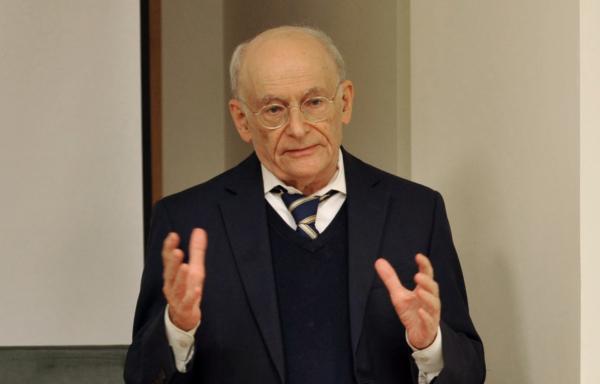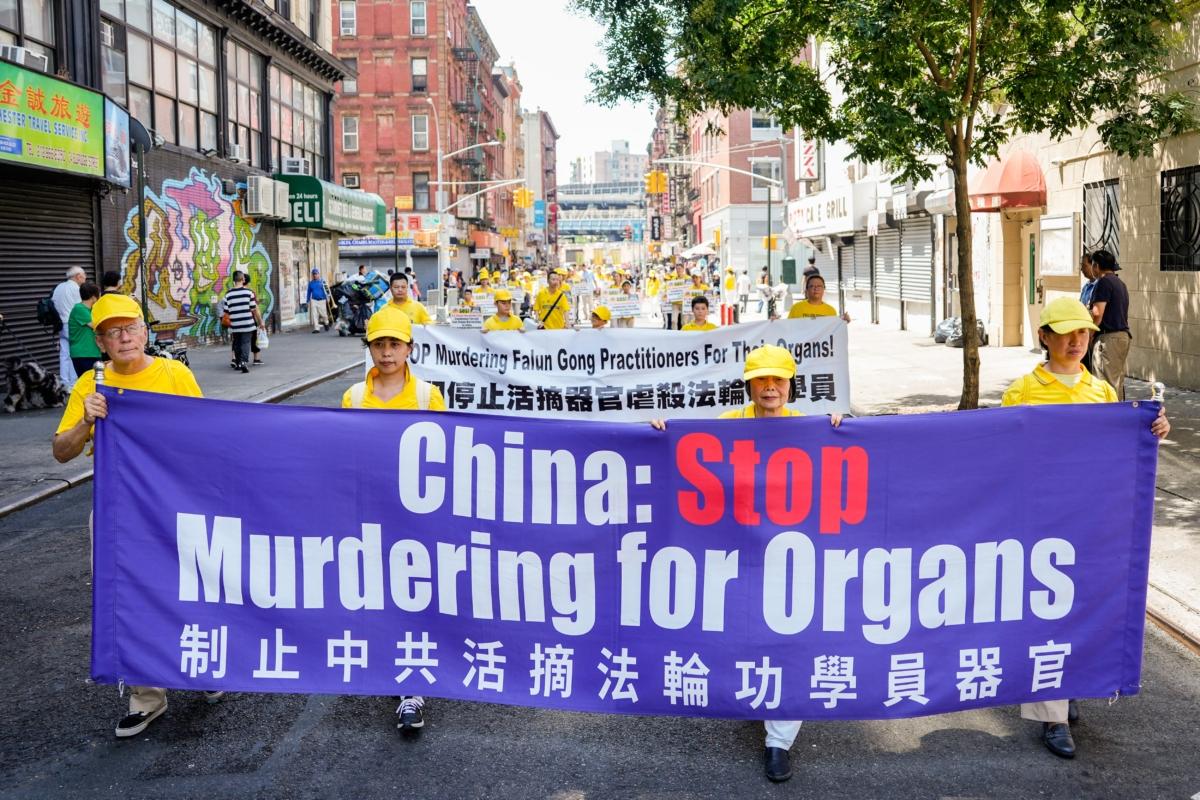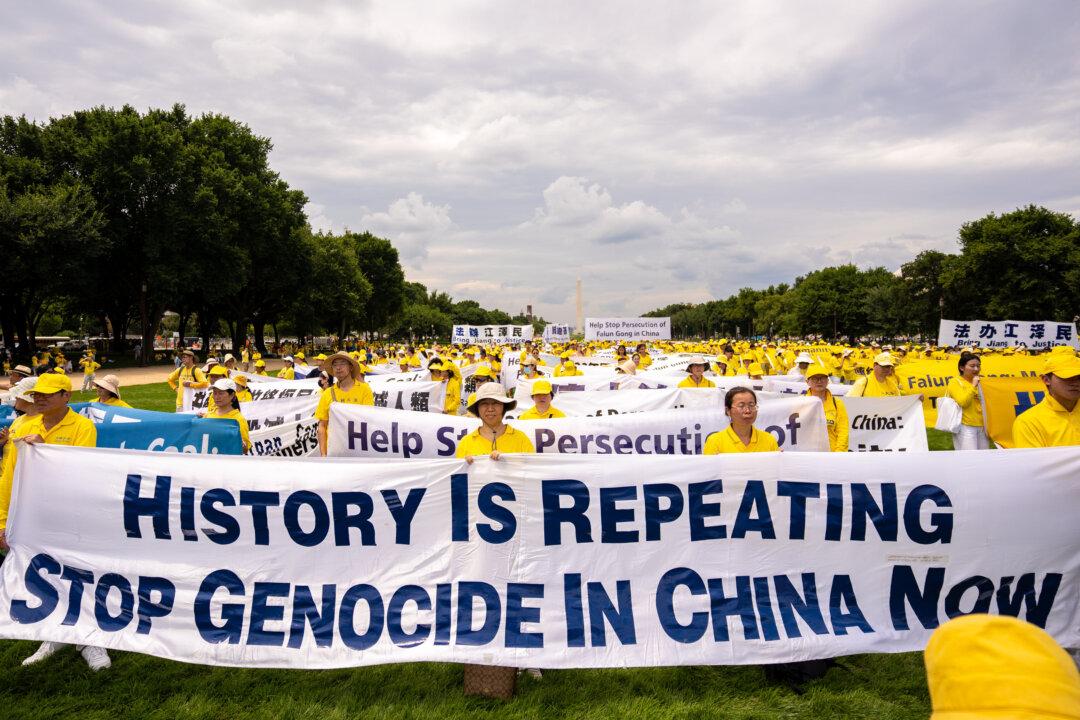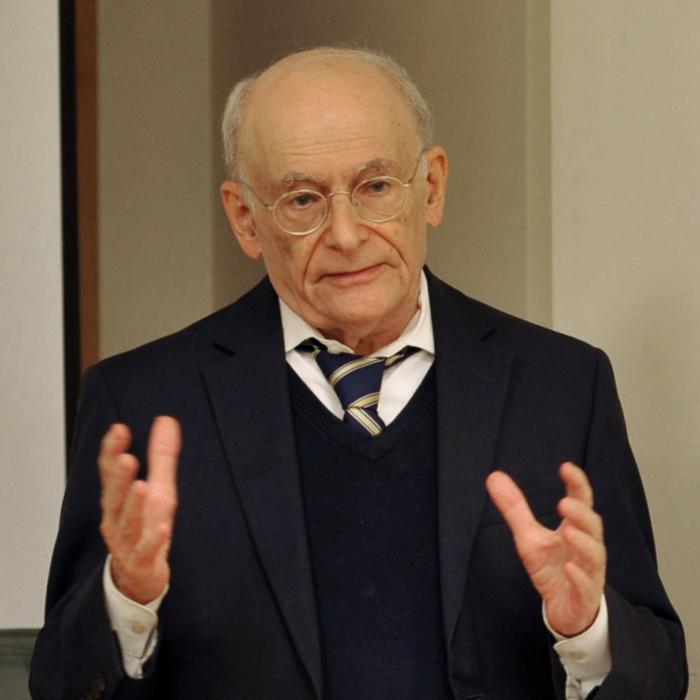The innocent Chinese who were killed by the Chinese communist regime’s crimes of forced organ harvesting are not the only victims. When Americans choose to buy these organs in China, they can become inadvertent victims too.
Evidence that has emerged over the past two decades points to an unimaginable practice: that the Chinese regime has been secretly killing prisoners of conscience on a mass scale to supply its transplant industry, according to experts who attended the virtual conference hosted by the Doctors Against Forced Organ Harvesting (DAFOH), a Washington-based medical ethics advocacy group.
Texas Resident Became ‘Victim’
Dr. Howard Monsour, a Texas physician, shared a story of his patient who received a liver transplantation in China that was made available and performed “almost immediately.”That was over a decade ago. Mr. Monsour was the chief of hepatology at Methodist Hospital in Houston and co-directed a liver cancer program. At his office, Mr. Monsour met a patient who had developed advanced liver cancer and was struggling to secure an organ transplant in the United States. As his survivability after liver transplantation was too low, the patient was turned down by several U.S. hospitals, including Mr. Monsour’s program.
However, a research student from China told the patient that he could arrange a liver transplant for the patient. The patient finally flew to China and got a new liver for $88,000.
“What was peculiar at the time was that it was almost as if he was having an appointment to get a transplant there,” Mr. Monsour said. In the United States, “it generally would take six months to a year before you'll get a transplant with cancer.”
Mr. Monsour said he had no idea what and how the transplant system worked in China back then. But when he learned that the regime was killing prisoners to take their organs, Mr. Monsour suspected his patient became a “victim” of the regime’s practice.
“He was a victim. He’s not a victim as much as someone who was killed to give their liver, but he was an inadvertent victim in the United States that got a liver from someone else.”
Extra Short Waiting Time
Mr. Monsour’s patient was not a single incident, according to Dr. Torsten Trey, executive director of DAFOH.Dr. Trey went on to say that several COVID-19 patients received lung transplants in China in 2020, with some donor lungs being collected within 24 hours.
“Where do the organs come from?” Dr. Trey questioned.
Notably, there was no official organ donation and distribution system in China until 2015. Chinese people, meanwhile, are reluctant to donate their organs because of the country’s culture and traditions that view the body as a gift from their parents and prescribes it be left untouched after death.
Ordeal in Chinese Custody
Winston Liu took up the spiritual practice of Falun Gong in 1998 when he was a Ph.D. candidate at Tsinghua University, a renowned tech school that is often called “China’s MIT.”Falun Gong—a traditional Chinese meditation practice that incorporates moral teachings based on the principles of truthfulness, compassion, and tolerance—was widely popular in China at the time. By state estimates, over 70 million Chinese were said to have taken up the practice in the late 1990s. At Tsinghua University alone, there were 11 Falun Gong practice sites, where mainly students, faculty members, and contractors working at the university practised the meditative exercises every day, according to Mr. Liu.
However, after former Communist Party leader Jiang Zemin launched an national eradication campaign of Falun Gong in 1999, Mr. Liu was expelled from the school and faced constant threats of harassment, arrest, detention, and physical torture. Mr. Liu was detained four times before escaping to the United States in 2005.
It has been nearly two decades since Mr. Liu was tortured in China’s prison network for refusing to renounce his Falun Gong faith. “Recalling this part of a memory, for me, it’s always not easy,” he told the conference.

Mr. Liu, who now works as an engineer in the United States, gave an account of waterboarding—one of the torture methods he endured during his 2001 detention.
“It was the first day. Right after I walked into the cell in the detention center, about 11 p.m., Jan. 1, 2001, I was forced to take off my clothes and squat down on a platform in a toilet room.
“It’s not exactly a toilet room at all ... it’s just using a one-foot height wall [to] isolate the space from a living space, so other inmates can watch me. Then, they poured cold water, one bucket by another, [and] continued for half an hour until I lost consciousness. And [then], they threw me on the floor.”
Extensive Medical Tests
What Mr. Liu couldn’t understand at the time was the extensive medical exams—including a blood test, X-ray exam, eye exam, and urine test—that he received while being held in solitary confinement.“That’s happening in July 2002. I was caught up in the lineup with other Falun Gong practitioners … in this prison, there were about 40 Falun Gong practitioners. We were guided to the hospital associated with the prison by the guards,” Mr. Liu recounted. “And then, we were told that these are regular examinations and health assessments for every prisoner.”
“However, it turned out that … this guard made lies to us,” Mr. Liu said. He later learned that only detained Falun Gong practitioners had been subject to the medical tests.
“We never received such extensive medical exams, even simple exams. Who cares [about] your health here?” Mr. Liu recounted the response of his inmate, a non-Falun Gong practitioner who was assigned to monitor him.
Mr. Liu’s account aligned with other Chinese prisoners interviewed by David Matas, an international human rights lawyer who was among the first to investigate the disturbing claims of the CCP’s forced organ harvesting crimes in the early 2000s.
Mr. Matas noted that China’s prison system only tested Falun Gong practitioners.
“There is a systematic organ examination and blood testing of Falun Gong practitioners, but not ordinary criminals. And I myself have interviewed both the practitioners and the ordinary criminals, and they keep telling me the same story,” he said.

Working with former Canadian Member of Parliament David Kilgour, the pair initially planned to visit China to conduct the work. With no response to their visiting request, the two Canadian researchers examined Chinese hospitals’ websites, media reports, and undercover phone calls with doctors in over a dozen provinces across China.
They also interviewed patients who received organ transplants in China, as well as Falun Gong practitioners who survived torture and incarceration in China’s prison system.
“When you listen to Winston’s story, it sounds tragic. But you have to replicate it by hundreds of thousands of people who are living that same life and given that same experience,” Mr. Matas said.
Media Silent
After decades of investigation, Marco Respinti, an Italian journalist, said that the CCP’s forced organ harvesting is now “very well documented” and that it’s supposed to be on every media’s front page “every other day.”“This is a normal climate that we were living in a free country like Italy,” said Mr. Respinti, who is also director-in-charge of Bitter Winter, a magazine on religious liberty and human rights in China.

Growing Call for Action
Dr. Zain Khalpey, a thoracic surgeon in Arizona, is urging doctors and transplantation societies to take the lead and voice their opposition to the CCP’s unconscionable practise of forced organ harvesting.“It raises the bar and the expectations for others to follow suit,” Dr. Khalpey said. “And I think that model upholds integrity. And other societies which have integrity should follow suit.”
Moreover, statements from medical communities can help lawmakers push their governments to take action against the CCP’s crimes of forced organ harvesting, according to Lord Philip Hunt, a member of the British Parliament and former health minister.
“The more doctors are able to voice their protest, the more easy it is for politicians like myself to get legislation change in our own Parliaments,” said Mr. Hunt, who proposed the House of Lords version of the amendment.
“Even in this troubled world we live now, doctors are still probably the most trusted profession. And so, when they bring their views to count, it really does influence the debate that we’re having about how on earth we’re going to influence China to stop these abhorrent practices.”






